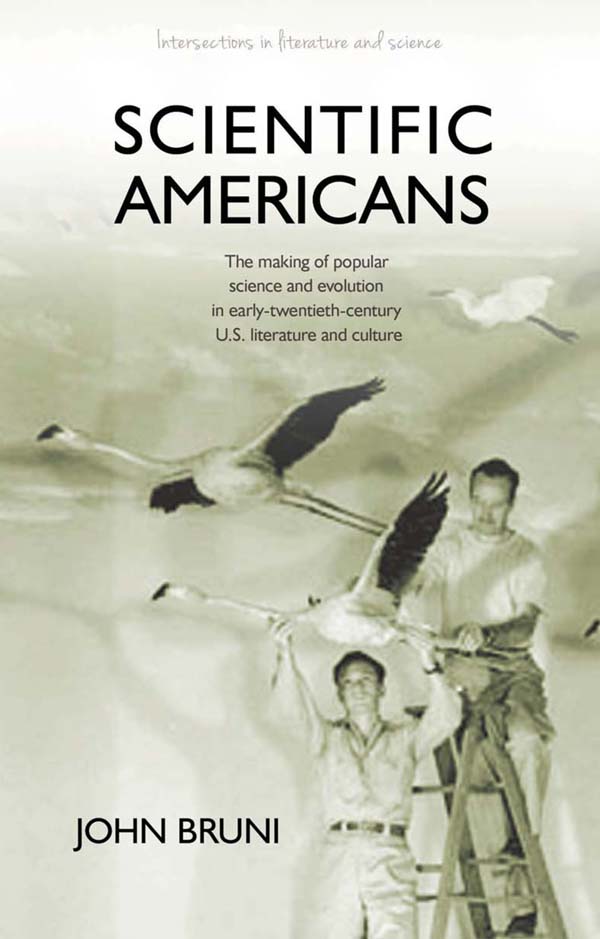Scientific Americans
The Making of Popular Science and Evolution in Early-Twentieth-Century U.S. Literature and Culture
Awdur(on) John Bruni
Iaith: Saesneg
Dosbarthiad(au): Science
Cyfres: Intersections in Literature and Science
- Mawrth 2014 · 272 tudalen ·216x138mm
- · Clawr Caled - 9781783160174
- · eLyfr - pdf - 9781783160181
- · eLyfr - epub - 9781783161355
Mae’r llyfr hwn yn herio dehongliadau cul o ‘Ddarwiniaeth gymdeithasol’ trwy edrych ar theori esblygiadol o safbwyntiau rhyngberthynol gwyddoniaeth, llenyddiaeth naturiolaidd Gogledd America a newyddiaduraeth boblogaidd.”
Introduction 3 Chapter 1: Popular Science, Evolution and Global Information Management 15 I. Reconstructing the Social and Scientific 15 II. Scientific and Cultural Narratives of Expansion 21 III. Information and Control Systems 32 IV. Historicizing Science 36 Interlude: Chapter 2 39 Chapter 2: Dirty Naturalism and the Regime of Thermodynamic Self-Organization 43 I. Social Regulation and the Power of Art 43 II. Self-Organization and Energy Flows 57 III. Ecocriticism and Thermodynamics 63 IV. Social Work and Moral Parasites 68 Interlude: Chapter 3 76 Chapter 3: The Ecology of Empire 79 I. The Call of the Wild and the National Frontier 80 II. Wild Fang and the Ideology of Domestication 91 III. The Multiplicity of Animal Bodies 97 IV. Ghosts of American Citizens 105 V. Where to Draw the Line? Biological Kinship and Legal Discourse 114 Interlude: Chapter 4 117 Chapter 4 After the Flood: Performance and Nation 120 I. Managing Life 120 II. Business Morality and Western Water Policy 128 III. 'Constitutional Restlessness' and 'Something Not Ourselves' 131 IV. Systems of Art: Perception and Communication 143 V. Pure Fiction 149 Interlude: Chapter 5 152 Chapter 5: The Miseducation of Henry Adams: Fantasies of Race, Citizenship and Biological Dynamos 155 I. Evolution as Historical Process 156 II. Thermodynamics and Citizenship 163 III. The New American as Techno-Subject 170 IV. Beyond Evolution: Information, Control and Paranoia 178 V. 'The Rule of Phase Applied to History' 183 VI. 'A Letter to American Teachers of History' 186 Conclusion 195 I. Henry Adams: Ecocritic? 195 II. 'Cyborg Politics' and the Techno-Scientific Regime 202 III. The American System and Global Debt 207 IV. Biopolitics and Posthuman Life: The Call of Jack London 213


